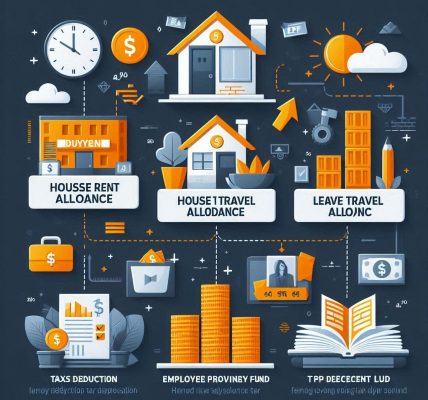Freelancing and gig work offer flexibility and independence, but they also come with unique tax challenges. Unlike traditional employees, freelancers must handle their own taxes, deductions, and compliance with tax laws. Smart tax planning can help freelancers reduce tax liabilities while ensuring legal compliance. This guide provides essential tips to help freelancers and gig workers navigate tax planning efficiently.
1. Understand Your Tax Obligations
Unlike salaried employees who have taxes deducted automatically, freelancers and gig workers are responsible for:
- Self-Employment Tax: Covers Social Security and Medicare contributions (typically 15.3% of net earnings).
- Federal and State Income Tax: Based on your total income and applicable tax brackets.
- Quarterly Estimated Taxes: Since freelancers don’t have tax withheld, they must estimate and pay taxes quarterly.
Understanding these obligations helps prevent underpayment penalties and ensures compliance with tax laws.
2. Track All Income Sources
Freelancers often receive income from multiple sources, such as:
- Clients paying directly via bank transfer, PayPal, or other methods.
- Gig platforms (e.g., Upwork, Fiverr, Uber, or DoorDash).
- Royalties, affiliate income, or digital product sales.
Keep track of all income streams and maintain proper records to avoid discrepancies when filing taxes.
3. Maintain Accurate Records of Expenses
Freelancers can deduct business expenses to lower taxable income. Common deductible expenses include:
- Home Office Deduction: If you use a dedicated space for work, you may claim a percentage of rent, mortgage, utilities, and internet bills.
- Equipment and Supplies: Laptops, monitors, printers, and software subscriptions.
- Travel and Transportation: Business-related travel expenses, including mileage and airfare.
- Education and Training: Online courses, certifications, and books relevant to your profession.
- Marketing and Advertising: Website hosting, domain registration, social media ads, and promotional materials.
Maintaining detailed records of expenses with receipts ensures you maximize deductions while staying compliant.
4. Separate Personal and Business Finances
To simplify tax filing and avoid legal issues:
- Open a separate business bank account for freelancing income and expenses.
- Use a business credit card for deductible expenses.
- Track transactions using accounting software like QuickBooks, FreshBooks, or Wave.
Having clear financial separation makes it easier to manage taxes and avoid IRS scrutiny.
5. Pay Quarterly Estimated Taxes
Since freelancers do not have taxes withheld by an employer, they must estimate and pay taxes quarterly (April, June, September, and January). To calculate estimated taxes:
- Use the IRS Form 1040-ES worksheet.
- Consider last year’s tax liability as a reference.
- Adjust for changes in income or deductions.
Failing to pay quarterly taxes may result in penalties and interest.
6. Take Advantage of Retirement Accounts
Freelancers can reduce taxable income by contributing to self-employed retirement plans:
- SEP-IRA (Simplified Employee Pension IRA): Allows contributions of up to 25% of net earnings.
- Solo 401(k): Provides higher contribution limits for self-employed individuals.
- Traditional IRA: Contributions may be tax-deductible based on income levels.
These retirement plans not only secure your financial future but also lower your taxable income.
7. Deduct Self-Employment Taxes
Freelancers must pay self-employment tax (15.3% for Social Security and Medicare), but they can deduct half of this tax as a business expense, reducing taxable income.
8. Consider the Qualified Business Income Deduction (QBI)
The QBI deduction allows eligible freelancers to deduct up to 20% of qualified business income. To qualify:
- You must operate as a sole proprietor, LLC, or partnership.
- Your income should be below the IRS threshold for full benefits.
Consult a tax professional to ensure eligibility and maximize savings.
9. Choose the Right Business Structure
Freelancers can operate under different business structures:
- Sole Proprietorship: Simple but offers no legal separation from personal assets.
- LLC (Limited Liability Company): Provides liability protection and potential tax advantages.
- S Corporation (S-Corp): Can reduce self-employment taxes by paying yourself a reasonable salary and taking additional profits as distributions.
Choosing the right structure impacts tax liabilities and legal protection.
10. Utilize Tax Software or Hire a Professional
Tax software like TurboTax, H&R Block, or TaxAct can simplify tax filing for freelancers. However, hiring a Certified Public Accountant (CPA) or tax professional ensures accurate deductions and compliance with tax laws.
11. Keep Records for Audit Protection
Freelancers should retain tax records, receipts, and invoices for at least three to five years to protect against audits. Proper documentation ensures:
- Proof of income and deductions.
- Easy retrieval of financial records in case of an IRS audit.
12. Leverage Health Insurance Deductions
Self-employed individuals can deduct health insurance premiums for themselves and their families. To qualify:
- You must report a net profit from freelancing.
- The policy should be in your name or your business’s name.
This deduction significantly reduces taxable income.
13. Understand State and Local Taxes
Freelancers may be subject to:
- State income tax (if applicable in your state).
- Local business taxes or licensing fees.
Research state-specific tax requirements to avoid unexpected liabilities.
14. Plan for Large Tax Bills
Freelancers often face high tax bills due to self-employment taxes and lack of employer withholding. Strategies to prepare include:
- Setting aside 20-30% of income for taxes.
- Using a high-yield savings account to earn interest on tax funds.
- Making extra quarterly payments if income increases.
15. Claim Business Use of Car Deduction
If you use your vehicle for freelance work, you can deduct mileage and related expenses. Choose between:
- Standard Mileage Deduction: A set rate per mile driven for business.
- Actual Expenses Method: Deducting a percentage of fuel, maintenance, and insurance costs.
Keeping a mileage log ensures compliance with IRS rules.
Conclusion
Freelancers and gig workers must take a proactive approach to tax planning to minimize liabilities and maximize deductions. By tracking income and expenses, paying estimated taxes, leveraging retirement contributions, and consulting professionals, freelancers can legally reduce tax burdens while staying compliant.
Proper tax planning not only saves money but also ensures long-term financial stability in the unpredictable world of freelancing.




